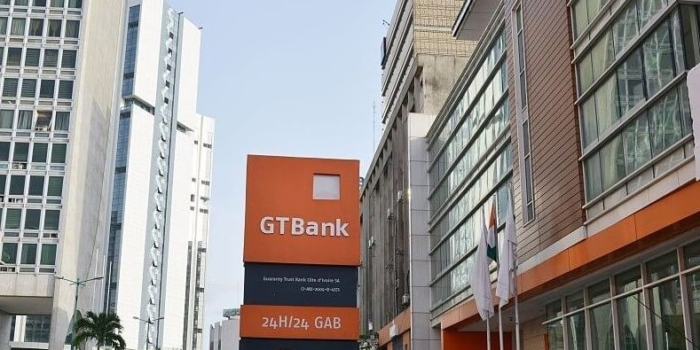As financial institutions, including Guarantee Trust (GT) Bank, upgrade their key banking programs to keep up with the changing banking system, what started as Sterling Bank’s regular digital system upgrade operation in September quickly became an industry-wide activity.
Why are Banks upgrading their systems?
The fundamental banking application is the backend system that handles everyday transactions and updates accounts and other financial records. According to Rasheed Bolarinwa, head of the Association of Corporate and Marketing Communication Professionals in Nigerian Banks (ACAMB), some financial institutions move their entire system from one core banking application to another owned by the same software company, while others switch to a completely different technology company.
It was gathered that in the most recent migration, GTB moved from ICS Financial Services, located in the United Kingdom, to EdgeVerve Systems’ Finacle, located in India and Sterling Bank moved from Temenos T24, based in Switzerland, to SeaBaaS by Peerless, an indigenous core banking system.
Glitch occurrences typically occur during the exercise, which has been an issue for many Nigerian bank customers since last month. Sterling Bank customers took to X at the beginning of September to complain about not being able to use the lender’s mobile banking app for transactions. This issue persisted for almost two weeks.
On October 1, Zenith Bank entered the list after its clients took to X to voice their dissatisfaction over the inability to use the bank’s mobile app. The bank notified customers through social media, email, and text that a new version of its app would be automatically installed on October 1.
Customers reported having trouble logging in for approximately 72 hours despite the company’s claims that the process would only take three hours.
Similarly, due to a system upgrade, First Bank clients could not conduct transactions on the company’s digital service for six days, but Zenith Bank’s problem persisted for three days. Access Bank and Guarantee Trust Bank (GTB) customers were informed of upcoming system updates on October 9.
While Access Bank delayed its October 12 system upgrade, GTB announced that its online banking channels would be unavailable for 11 hours beginning on October 13.
Sterling Bank’s CEO, Abubakar Suleiman, explained in a recent statement about the system upgrade that prior to the third quarter (Q3) of 2024, all Nigerian banks were using foreign-based core banking application systems, which required millions of dollars in maintenance.
According to Suleiman, Sterling Bank could lower the cost of financial inclusion and domesticate its technological costs by switching to SeaBaaS. He said the continent’s trade balance is further strained by the hundreds of millions of dollars African banks spend each year on overseas core banking applications.
“By the successful implementation of this new core banking system and the efforts of our incredible partners at Peerless, we are not only establishing a new benchmark for Nigerian financial services, but we are also opening the door for African institutions to domesticate their technology costs in the future, which will lower the cost of financial inclusion,” he said.
However, according to Bolarinwa, banks are willing to pay the necessary sum to provide their clients with high-quality service; thus, the system improvement is not due to cost. According to him, the exercise can be a significant upgrade of core banking applications or a component of regular system maintenance.
Bolarinwa stated that it might even be a disruption at the colocation locations caused by third parties or damage to cables that supply banks with technology services like the recent fit in the underwater cables that served giddiness across Africa.
“The goal is to provide seamless and optimal banking services (to all classes of bank customers) when routine maintenance is required for core banking application updates.”
An organisation can rent space for servers, storage devices and other networking and computing infrastructure at a colocation facility (colo), a data centre or a telecommunications facility run by a third party. Power, personnel, disasters and connections are the leading causes of disruption at colocation storage facilities.
Is the upgrade to the system a CBN directive?
According to a bank official who wished to remain anonymous, the Central Bank of Nigeria (CBN) does not require banks to update their systems.
“The bank upgrades its systems when it deems the necessity to do so. Although the apex bank is not required to approve it, the banks are free to notify CBN about this conduct,” the source said.
According to the bank source, CBN wants all banks to succeed; thus, platform improvements are typically carried out at night with fewer transactions and users. It is “in the character of Nigerian banks to carry out such exercises continuously despite the humongous cost involved… as they operate.”
On his part, Bolarinwa emphasised that the CBN is not involved in the effort because they work at the forefront of the world’s most advanced technology. He claimed that when financial firms work to innovate and enhance their offerings, system updates at banks frequently happen by accident. It’s just a coincidence.
“No bank notifies other banks about platform or system maintenance or upgrades,” he stated.
“Nigerian banks are the talk of the sub-Saharan and African continents and beyond because it is in their DNA to be a beacon of innovation and progressiveness.”
Are funds safe while the system is being upgraded?
According to a bank spokesperson who spoke to journalists, customers’ money will be secure while system changes are underway.
“Your money in a bank will never vanish. In a bank, your money will never, ever vanish. Do you know why? Due to the strict regulation of banks,” the source said, adding that “the Nigeria Deposit Insurance Corporation (NDIC), the Securities and Exchange Commission (SEC) and the CBN oversee the sector and that “there are different layers and they are professionals.”




